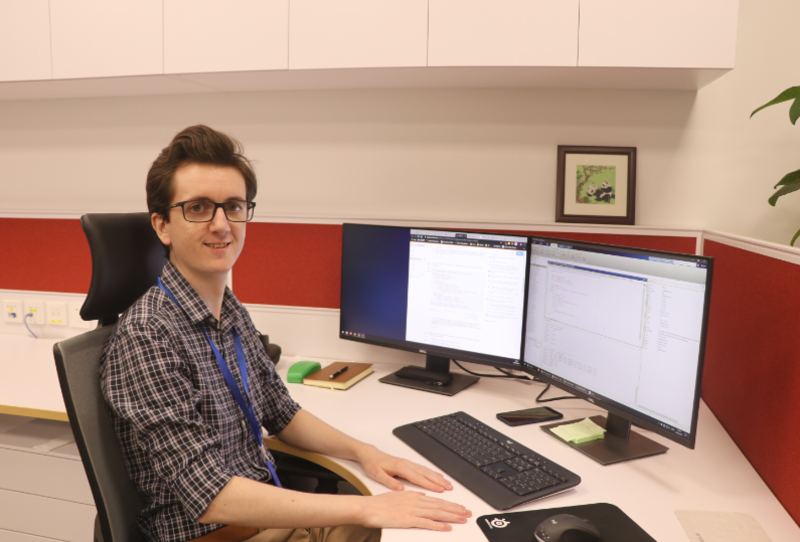Exclusive interview of Dr. Gert Mertes

Dr. Gert Mertes joined OSCAR in March 2019 as a Research Scientist in the Computational Health Informatics Laboratory (CHI), led by Prof. David Clifton. He joined us after completing his doctoral studies in Engineering Technology at KU Leuven, Belgium where he worked on AI enabled assistive technology for elderly adults. During his doctoral research, he collaborated with researchers at Fudan University and Huashan hospital. This is a short interview with Dr. Mertes about his research projects and his livelihood in Suzhou.
Q: What is your current main research project and how is it progressing?
The main research project I am working on right now is a collaboration with Wuhan Children’s Hospital. The project's goal is to use abdominal ECG analysis of pregnant women to determine the health of the unborn foetus, by correctly identifying which parts of the signal come from the mother and from the foetus.
It is a challenging task, and signal separation presents its own difficulties in the field of AI, but it has far-reaching applications in the clinical field. Taking an abdominal ECG is a relatively simple procedure, and if we can accurately measure the foetus’ heart rhythm in this way, it can be used as a pre-screening tool to detect foetal distress or abnormalities in the heart rhythm.
Ultimately, our goal is to use these methods in a portable self-screening device, where patients would have the opportunity to monitor the foetus’ health at home, thus guaranteeing easier access to patients, and freeing hospital services for other emergencies. We’re also working with the hospital in the area of big data to link our ECG analysis with patient records and clinical outcomes, to see if we can make predictions about the foetus’ health in the future based on current recordings.
Q: How has your life been at OSCAR and what are your thoughts on the environment?
So far everything is going smoothly. The professional environment at OSCAR and funding support from local government allows me complete focus on my research. This is a contrasting experience to that of a doctoral student, where one typically must spend more time doing administrative tasks or worry about funding. The OSCAR administration staff has also been of tremendous help in helping me get settled here.
In terms of research, our lab fully came into action earlier this year, and we are working with multiple clinical partners and companies to launch joint research projects. Naturally, these agreements take some time to finalise, especially concerning the legal agreements, but once established, the available datasets and expertise these partners have to offer will result in some very exciting project outcomes.
Another great perk is the infrastructure available. For instance, our computational cluster is state-of-the-art, allowing for the fast development of Deep Learning models, which are very computationally expensive. Furthermore, our offices are spacious and allow us to host students, researchers or clinicians that want to visit and work with us.
Q: What do you think of Suzhou and how have you found your living experience since starting at OSCAR?
Since I have already spent a few months living in Shanghai during my PhD studies, moving to Suzhou was relatively easy for me, as I had already experienced all the typical difficulties and challenges associated with moving to China as a foreigner. Together with the helpful support of OSCAR, this made the settling process relatively quick. As an example, I managed to find my apartment 2 days after coming to Suzhou!
Suzhou is a fantastic city to live in. The city centre is a quick subway stop away, and I live in a quiet and clean area surrounded by beautiful parks and scenery, which is something I really enjoy. Furthermore, the city is simultaneously very beautiful and full of history, and, very active with the latest technological advancements (also including the proximity to Shanghai). Combined with a very good transportation system, I am very pleased with the variety of activities available.
Q: What are your short-term and long-term plans for your career?
At the moment, mine and the lab's goal is to finish establishing our first collaborations and research projects that are currently in preparation. This will help grow the lab and invite interested parties to our technology and its potential. We are working with our partners to obtain access to clinical data from the available sources (e.g.: hospitals) as our research in machine learning and AI strongly depends on access to this data.
Looking farther into the future, my goal at OSCAR is to develop my skills as a Research Scientist and to expand my knowledge in the field, as well as contribute to the enhancement of current AI tools in Healthcare. I further hope to obtain a good familiarity with the operational logistics in China, as I would like to keep my current collaborations with Chinese partners. There is much untapped potential of clinical AI yet to be explored, and China is one of the leaders in the use of such technologies. It is very exciting to be a part of that.



